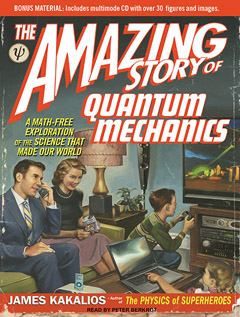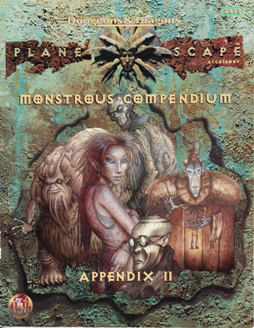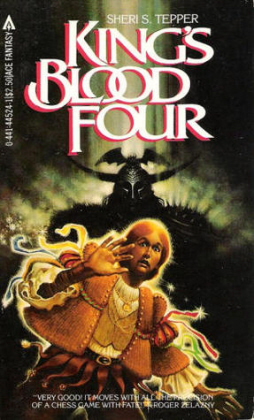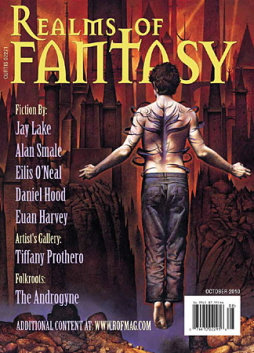Join the Sorcerer’s Guild Today
 Jeff Crook, the mastermind behind The Harper’s Pen Award, has announced some changes to the Award, and opened up membership to the Sorcerer’s Guild, the voting body.
Jeff Crook, the mastermind behind The Harper’s Pen Award, has announced some changes to the Award, and opened up membership to the Sorcerer’s Guild, the voting body.
He’s also offering a free PDF copy of Black Gate 14 (sold here for $4.95) to the first 100 members:
The time has come to start thinking about nominations for the next Harper’s Pen Award. That means it’s time to unlock the adamantine doors of the Sorcerer’s Guild and open our membership drive. The Sorcerer’s Guild is an autonomous anarcho-syndicalist collective of fans, editors and authors of the short fiction genre commonly known as Sword and Sorcery (cue lights, smoke, thunder). We gather once each year to trade spells and knitting patterns and select the winner of the presigious and lucrative Harper’s Pen Award. The 2009 winner was John C. Hocking for his story “The Face in the Sea” published in Black Gate #13.
Beginning this year, you must be a member of the Sorcerer’s Guild to nominate a story for the Harper’s Pen. Cruel, I know, but we must maintain some standards. Luckily, joining the Sorcerer’s Guild is not only easy, it’s rewarding, because we are prepared to offer the first 100 new members a pdf download of Black Gate #14. Yes, that’s right – by joining today, you will receive a free magazine of the some of the best Sword and Sorcery short fiction being published today.
The complete announcement is here.
If you’re interested in Sword & Sorcery or short fiction, or nominating authors for the Harper’s Pen Award, joining the Sorcerer’s Guild could be extremely rewarding — and not just for the free issue of Black Gate.



 One of our more popular recent stories, Peadar Ó Guilín’s “The Evil-Eater,” has been given the full podcast treatment by Pseudopod.org.
One of our more popular recent stories, Peadar Ó Guilín’s “The Evil-Eater,” has been given the full podcast treatment by Pseudopod.org.
 The false motivational poster to the left has nothing to do with the rest of my post today, except that it came as a reward to myself after a week of tough self-disciplined writing, aided by the simple power of time awareness. As I finished my enormous work on late Sunday evening, I celebrated my triumph with a small but exquisite waste of time, creating one of the many “demotivational posters” that travel around the ‘net as humor or an approximation of humor. Better than LOLCats, at least. This is my deep inner Tolkien Geek, who has always wondered what the Lord of the Nazgûl thought as he died under Éowyn’s blade on the Pelennor Fields. My guess: “Damn fine print!”
The false motivational poster to the left has nothing to do with the rest of my post today, except that it came as a reward to myself after a week of tough self-disciplined writing, aided by the simple power of time awareness. As I finished my enormous work on late Sunday evening, I celebrated my triumph with a small but exquisite waste of time, creating one of the many “demotivational posters” that travel around the ‘net as humor or an approximation of humor. Better than LOLCats, at least. This is my deep inner Tolkien Geek, who has always wondered what the Lord of the Nazgûl thought as he died under Éowyn’s blade on the Pelennor Fields. My guess: “Damn fine print!”

